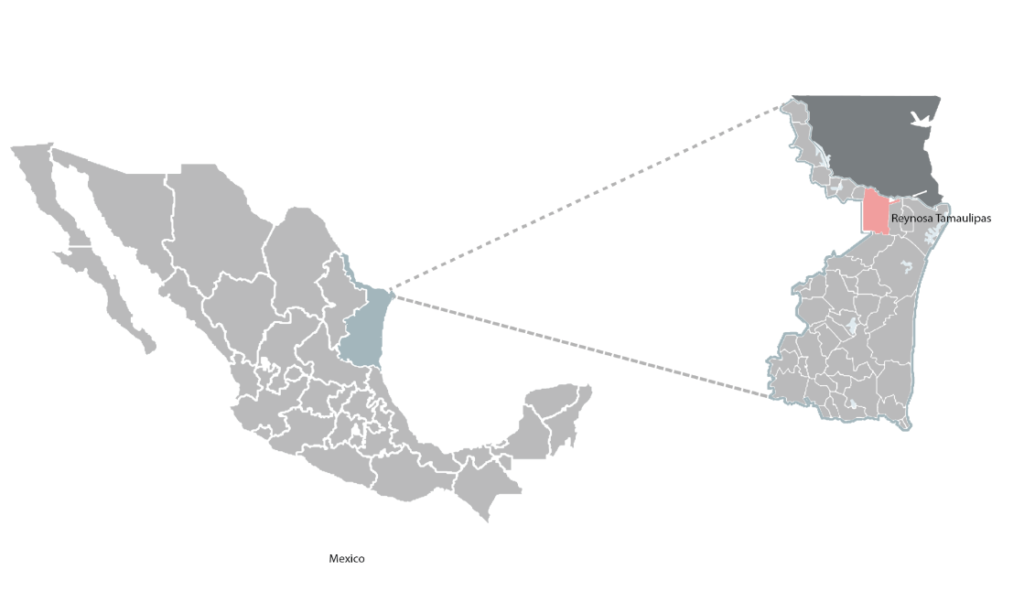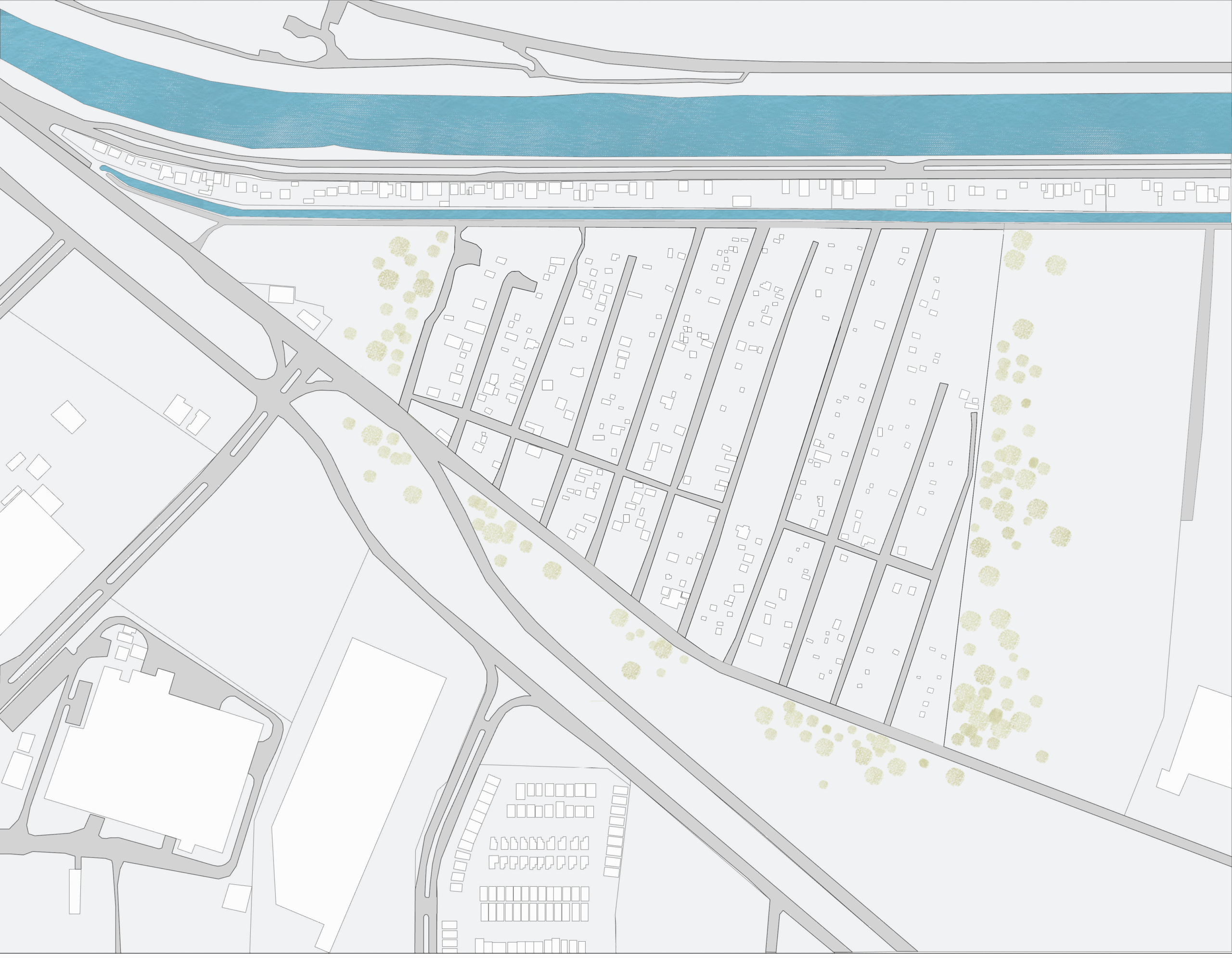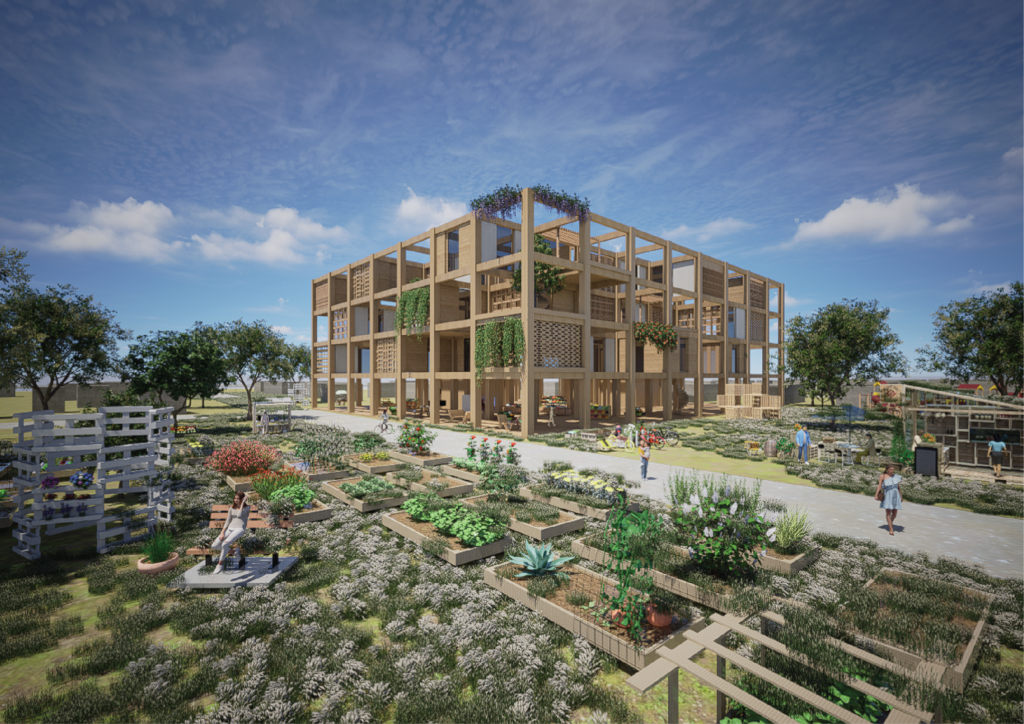“Waste does not exist—products are designed and optimized for a cycle of disassembly and reuse.“
_Ellen MacArthur Foundation
The construction industry is the number one consumer of global raw materials while being one of the biggest producers of waste in the European Union.In this Research, we aim to explore the possibilities of secondary waste wood (Pallets) based on the notion of discreteness and develop a “Programmable Matter System”.These discrete building blocks can be disassembled and reassembled through iterative accumulation, seriality, and recombination in different conditions with the potential for automation.
This project strives to address the inadequate housing problem and the lack of primary facilities of informal settlement by proposing “Self-build” modular units and community facilities for economically challenged people.The modular units can be scaled up and down based on user’s need by using different iteration of pallets from our catalog to build everything from the structural elements to furnitures following Stewart Brand’s Six S’s system and DfD. By using a adaptive workflow, we aim to design a versatile module following simplified construction techniques that don?t require any complex tools to encourage community involvement in the construction process.While incorporating how each pieces of the pallets could be used as an advantage in the design process leaving no waste behind.
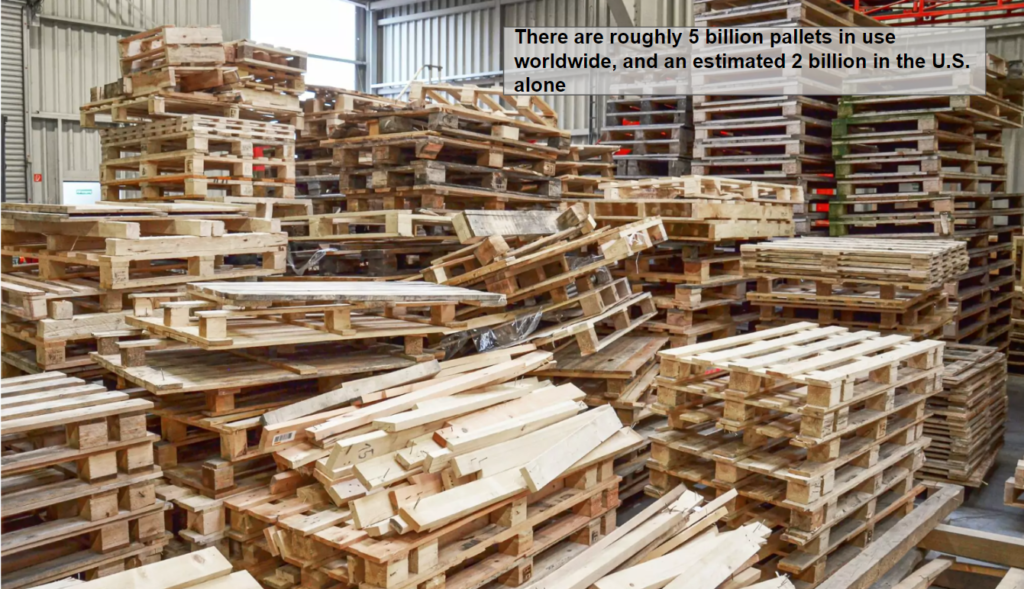
Interpreting pallet’s components potential
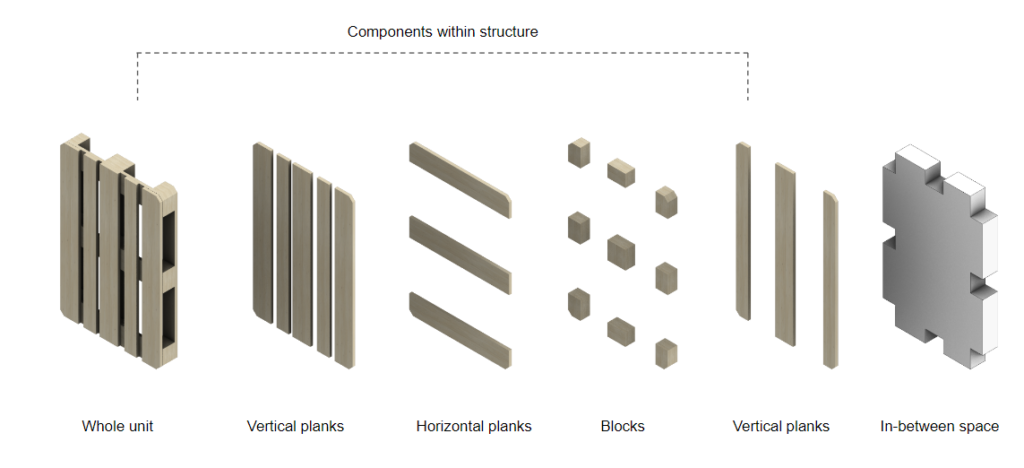
Missed Opportunity
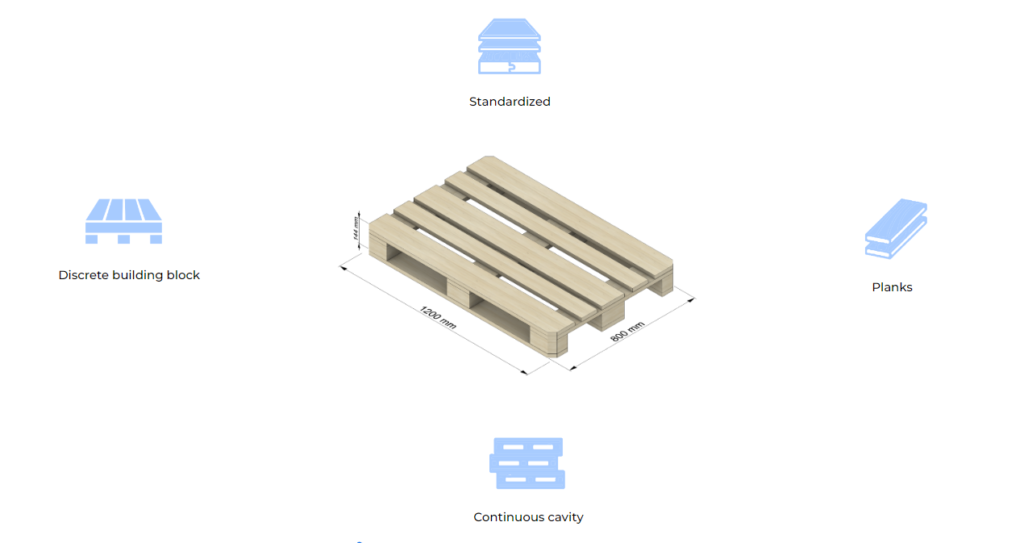
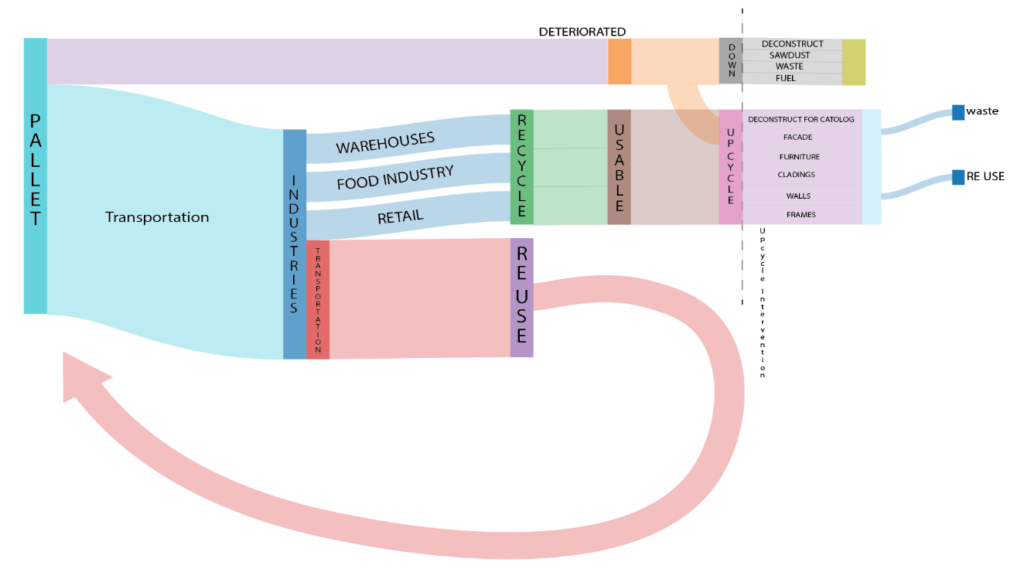
Proposed material cycle
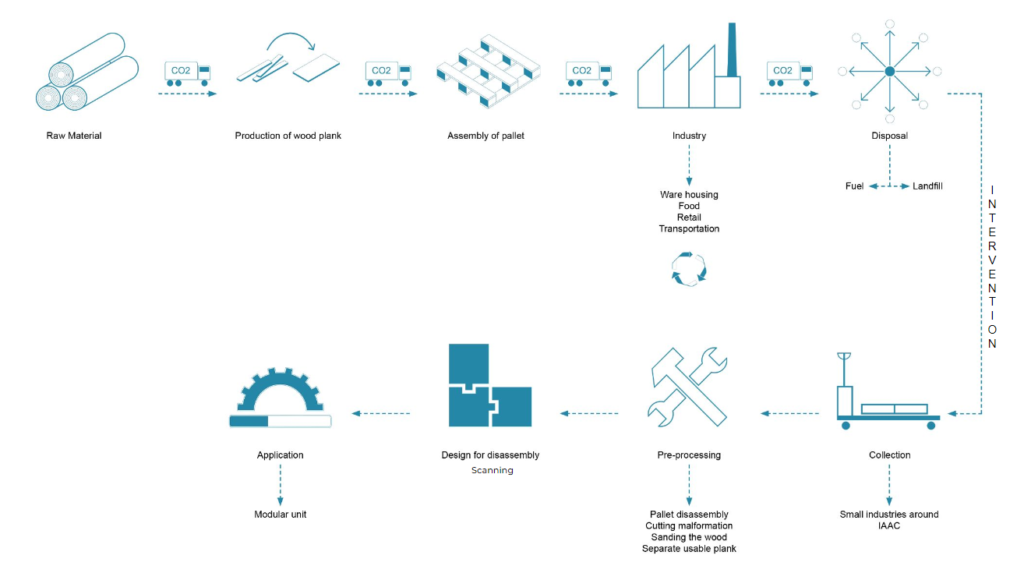
Different types of Pallets & uses

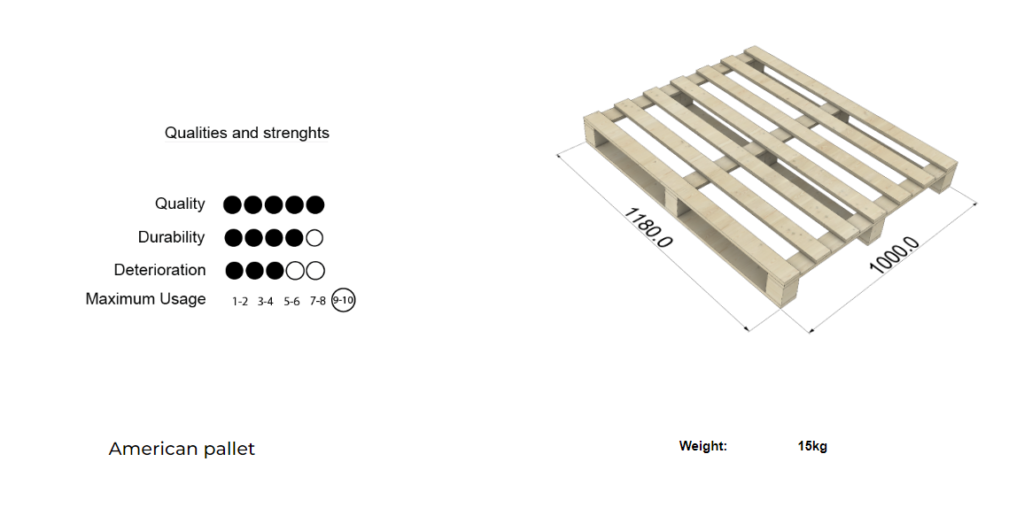
Pallet Properties
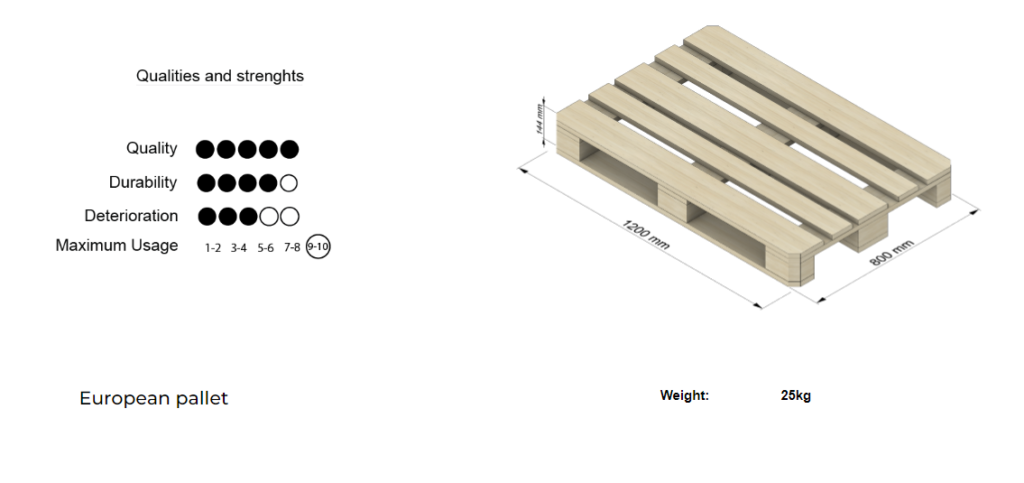
Catalog of discrete building blocks
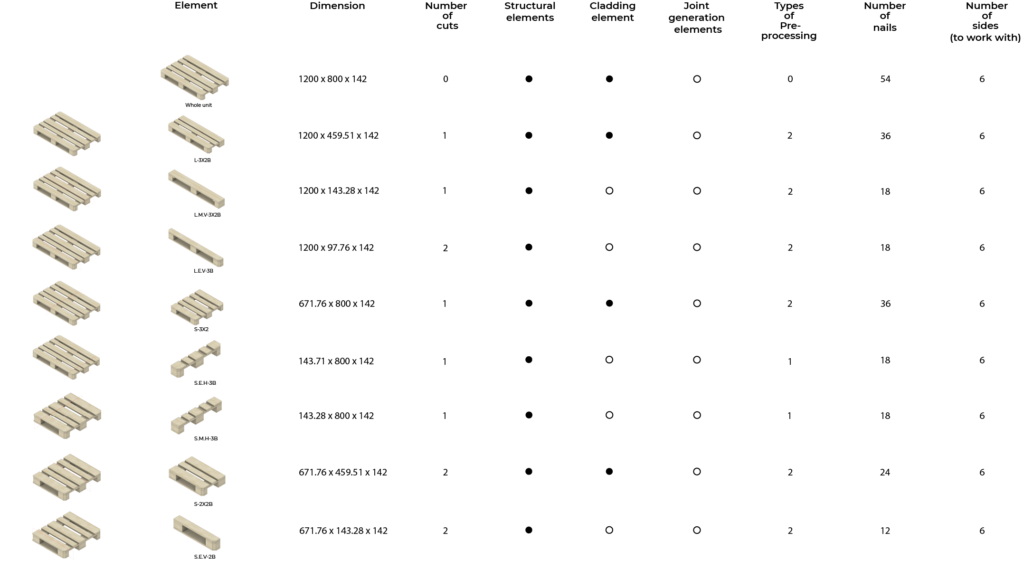
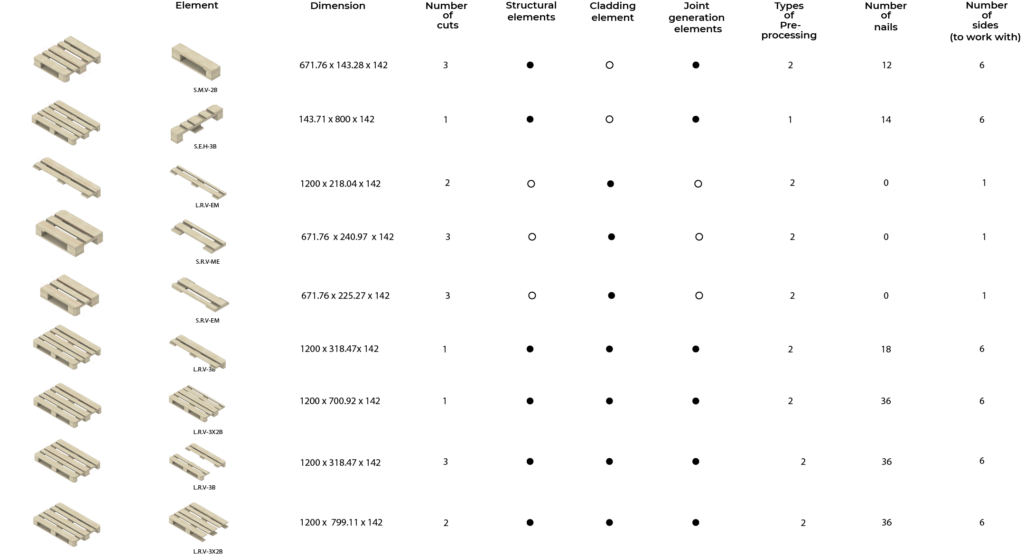
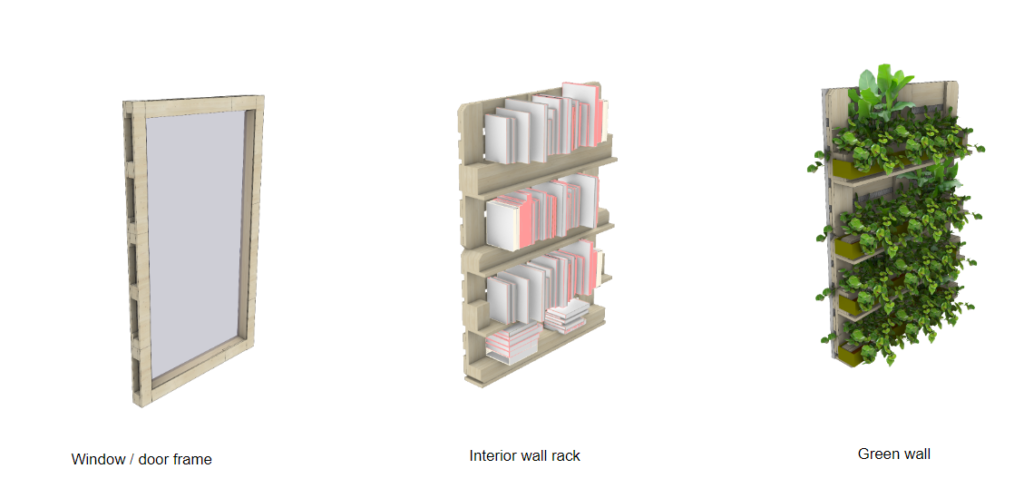
Prototype Elements
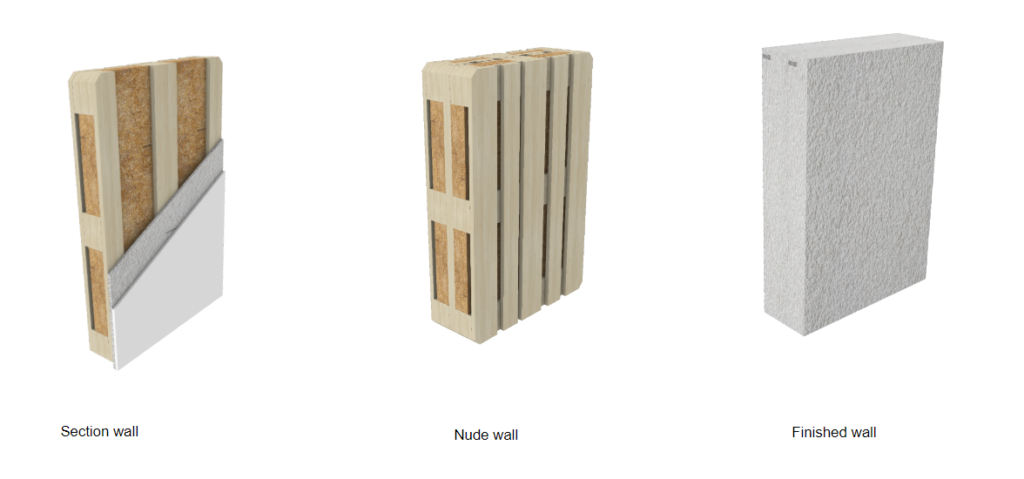
Joineries details
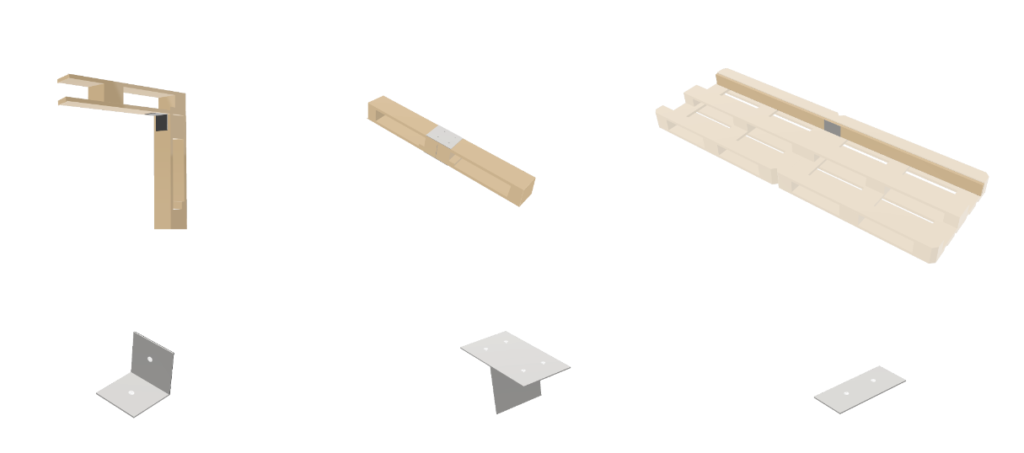

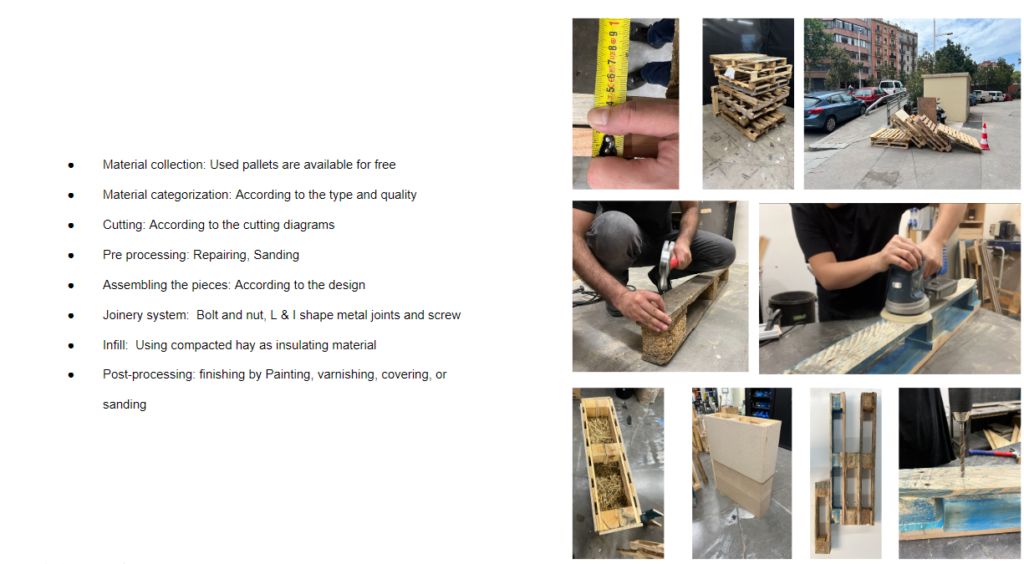
Facade Catalog
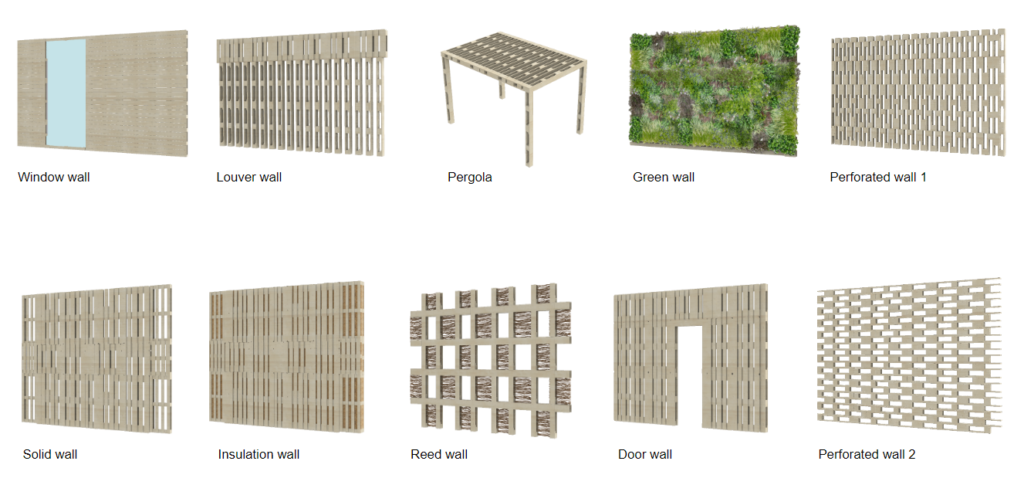
Facade Catalog: Insulation wall


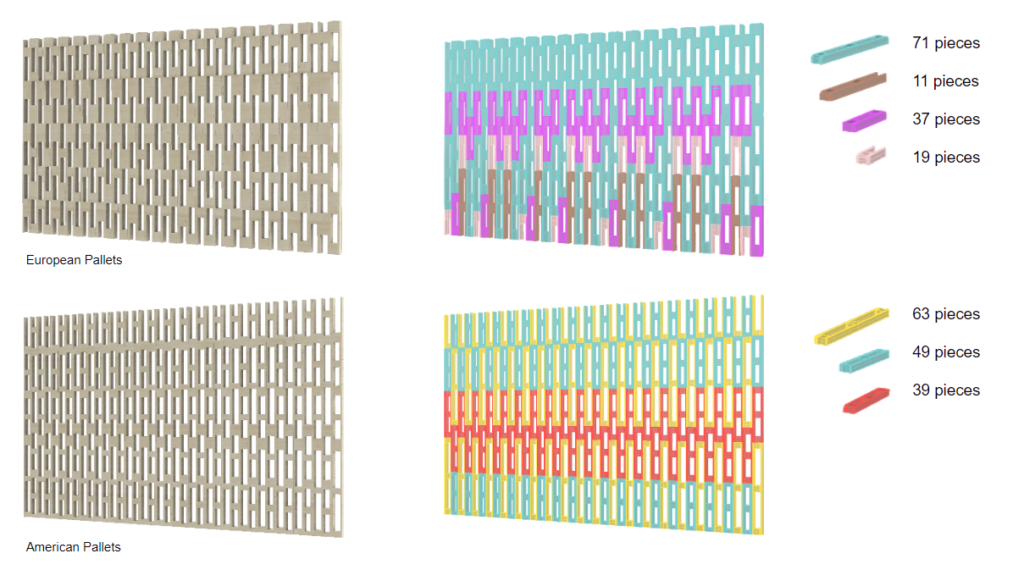
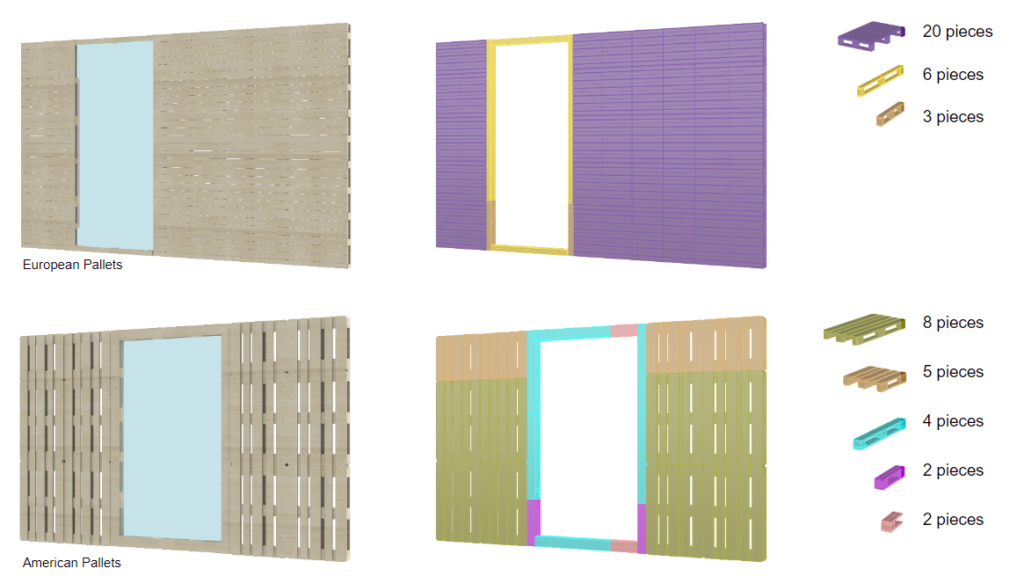
Location
